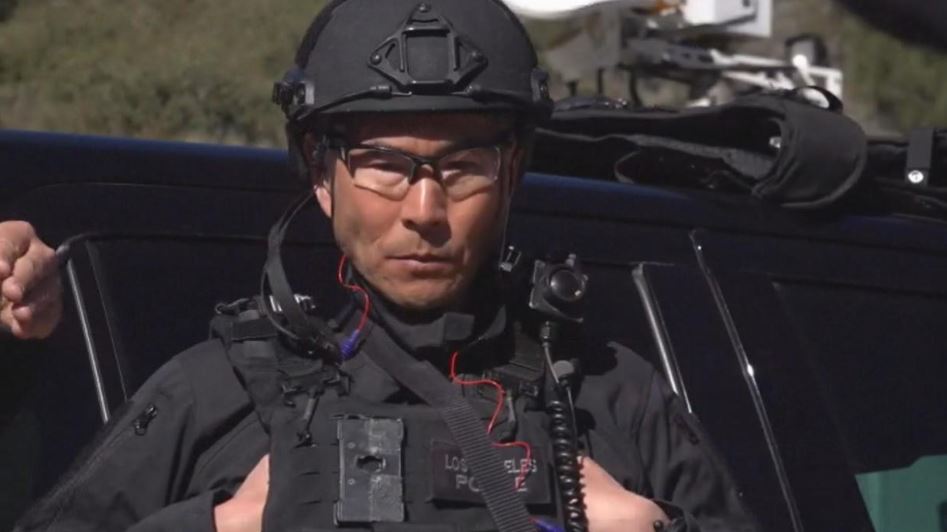Chief trauma surgeon gives life-saving training to LAPD’s elite

When Dr. Kenji Inaba isn't the Chief of Trauma at one of LA's busiest hospitals
By Jeff Nguyen
Click here for updates on this story
LOS ANGELES (KCAL) — When Dr. Kenji Inaba isn’t the Chief of Trauma at one of LA’s busiest hospitals, he’s a reserve police officer who trains the Los Angeles Police Department’s elite.
In 2016, Inaba graduated from the LAPD academy, a requirement to become a medical director and provide medical guidance to the department. He works with the elite Metropolitan Division which has a team of EMTs.
“We need to be able to think quick on our feet — be able to adapt to all situations,” said Sgt. Amanda Lankford, who supervises the division.
Those skills were displayed last year when three officers, including Steve Wills, were wounded in a chaotic shootout.
“I was it in the left arm. I have a fractured left arm, 2 plates,” Wills said. “18 screws there… I still have a 9mm bullet stuck in there.”
Two officers risked their own lives to pull Wills to safety as another team member began treatment for gunshot wounds to his right leg.
“I remember him driving his knee into my upper thigh and how bad it hurt,” Wills said. “I was thinking ‘Dude, get off me.’ But, he was doing what he needed to do.
That technique is part of the medical training that’s drilled every four weeks — a regimen that Officer Wills team also receives.
“I owe all of them my life,” Wills said. “That’s a level of gratitude I can’t verbalize and a debt I can never repay. And, you know what? Without Kenji providing that training. I don’t know where I’m at.”
Sgt. Beth Jenkins is the department’s wellness coordinator.
“We’ve had other officers who’ve been shot or have been in major traffic collisions and by the grace of God, Dr. Inaba was there in the emergency room,” she said. “He provides outstanding care.”
This stellar life-saving service doesn’t stop in Los Angeles. Inaba, who is also the program director for surgery residency, has taken his knowledge to Ukraine to provide battlefield emergency training to the military and civilians. He’s also worked in Nepal and Haiti following deadly earthquakes.
He stresses teamwork is key in both medicine and police work.
“Doing this job really gives me a deep understanding of what happens in that entire pre-hospital phase of care before a patient arrives to us,” he said. “It allows us to communicate better. We’re much more readily able to deal with whatever it is that comes in.”
Please note: This content carries a strict local market embargo. If you share the same market as the contributor of this article, you may not use it on any platform.